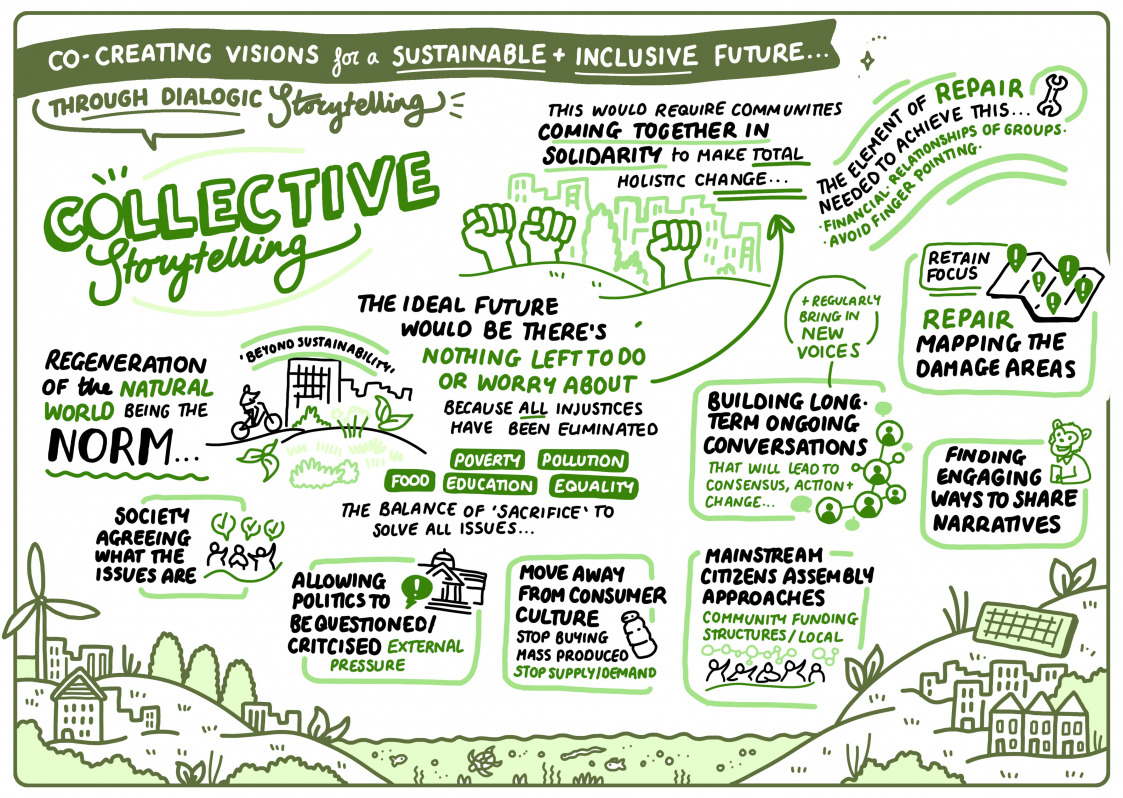Towards sustainable futures
OVERALL: Different people have different views on what sustainable futures should look like. This project is based on understanding a diversity of views and perspectives. Participants are invited to join a two hour workshop in small groups (four to six participants on average). The aim is to develop meaningful conversations and shared visions for a sustainable future.
What is a sustainable future? It’s about meeting the needs of the present without compromising the ability of future generations to meet their own needs
WHAT HAPPENS: The workshop will use storytelling as a technique: participants are first asked to take quiet time to think about their own individual story about their relationship with nature and sustainability. They then describe their experiences and what matters to them with the rest of the group. After reflecting on those individual stories, they discuss what they have in common. Finally, the group then collectively develops a vision for a sustainable future.
The workshop lasts 2 hours. Most of the workshop takes place sitting down around a table, with the chance to move around if people would like.
The workshop is facilitated, with guidance throughout and prompts to support people’s thinking. Visual methods also form a big part of the workshops, either through visual representations (drawing, collage etc) of the participants’ stories, or through the involvement of an artist capturing the essence of individual and collective stories live on drawing boards. People don’t need artistic skills to attend.
This is funded through University of Southampton and forms part of a research project. Participants will be asked to read a Participant Information Sheet and sign a Consent Form prior to the workshop starting. You can ask any questions about this in advance or on the day.
BENEFITS TO ATTENDING: The workshop helps people to reflect on their own experiences and priorities. It encourages people to make stronger social connections, whilst also identifying some shared priorities. This can guide future action, either together or individually.
Participants keep a visual representation of their discussions, together with the experience of engaging with others in depth and at a personal level on what a sustainable future means to them.
For people who are part of organisations, the knowledge gained can help them improve the services they offer or apply for funds to do more work around our shared future.
WOULD YOU LIKE TO JOIN A WORKSHOP?
Contact Fabien Littel from University of Southampton F.S.Littel@soton.ac.uk
MORE INFO
https://www.fabienlittel.com/post/fostering-inclusive-discussions-through-dialogic-storytelling-workshops
Here are some example of the sort of visual storytelling that this leads to:

